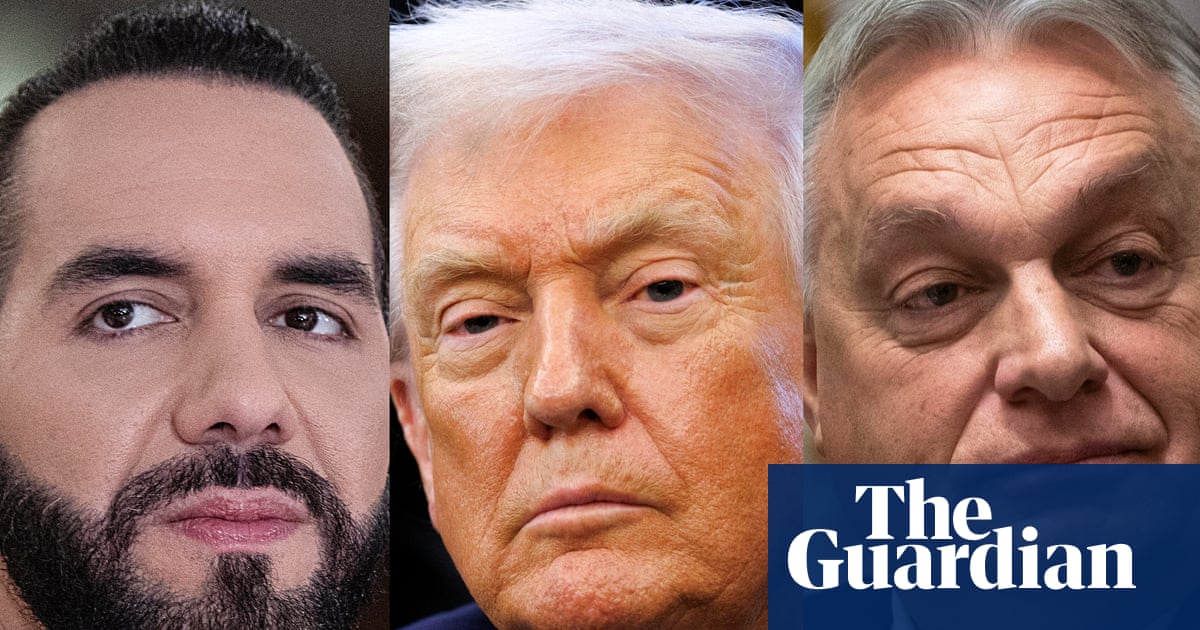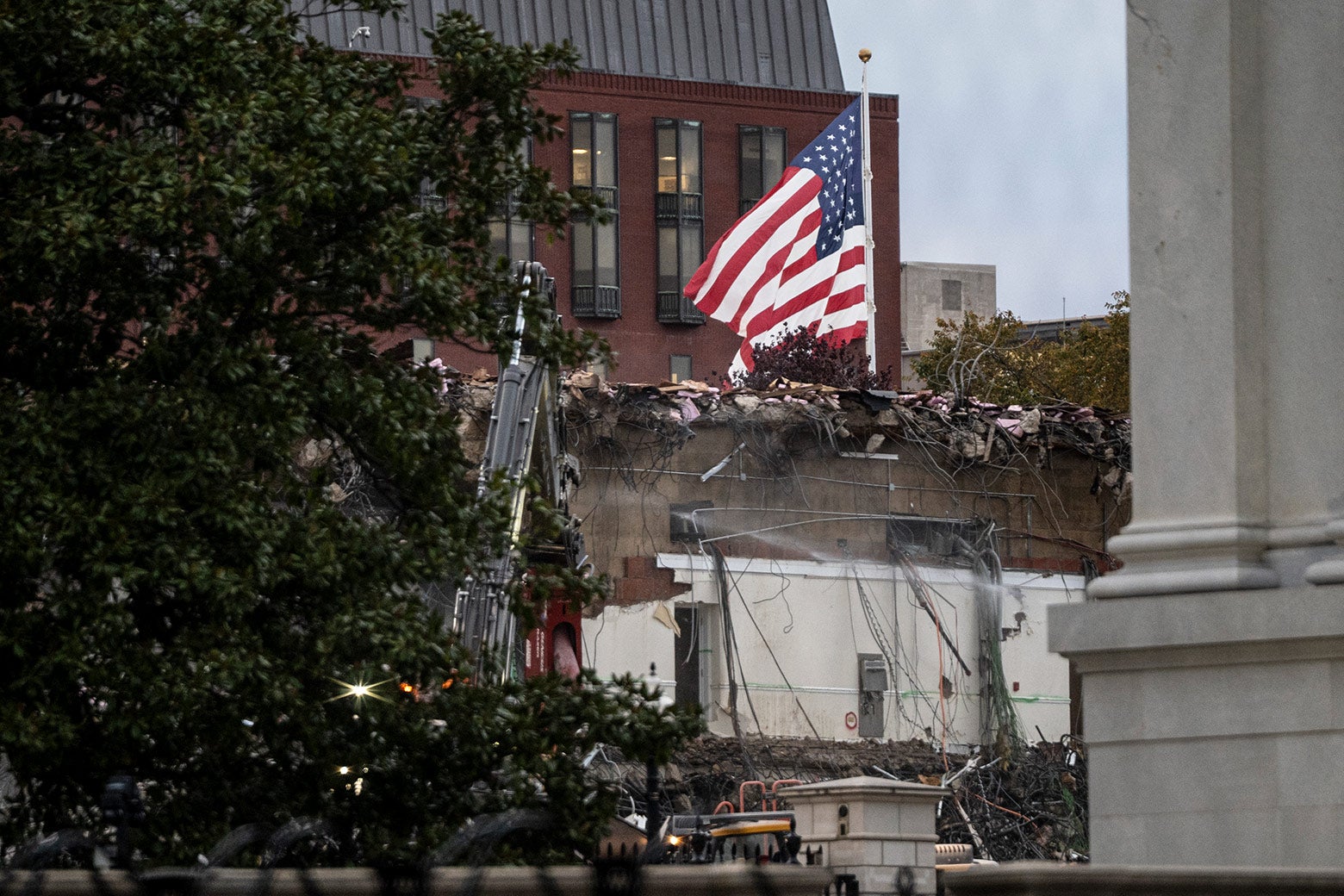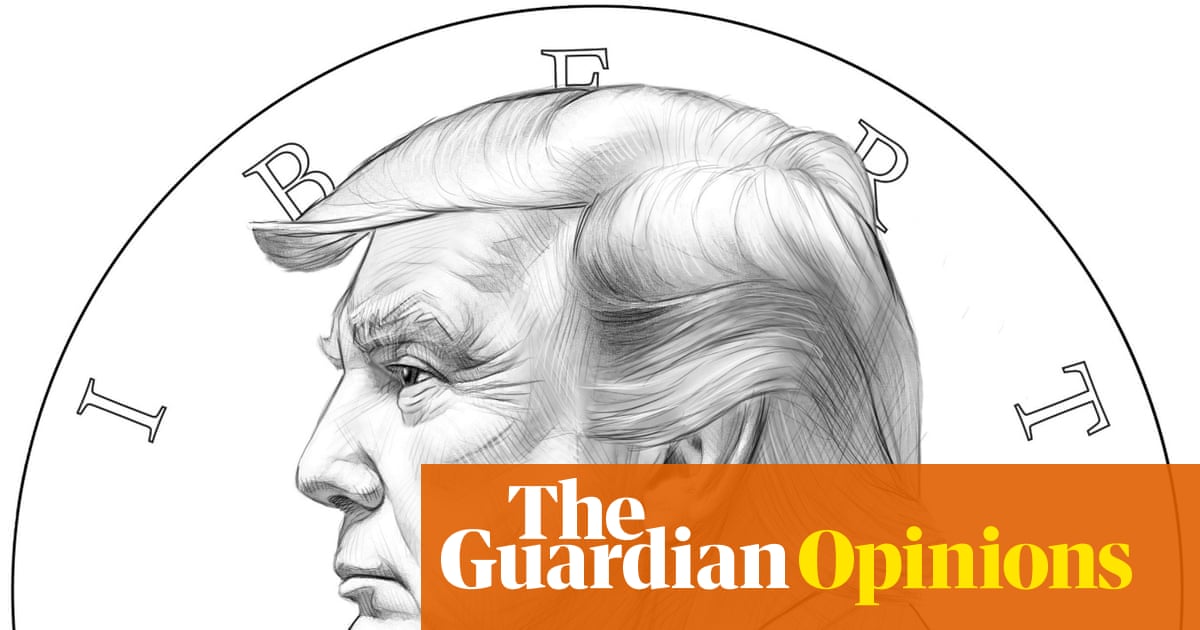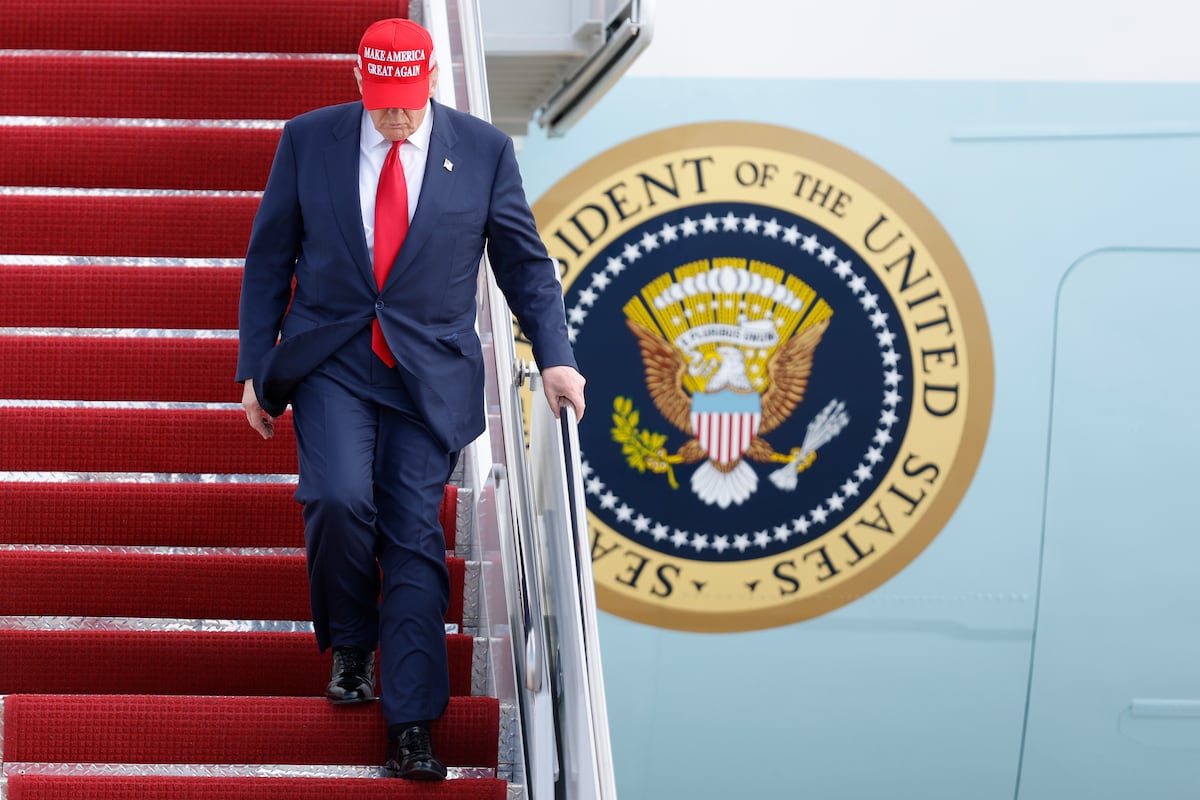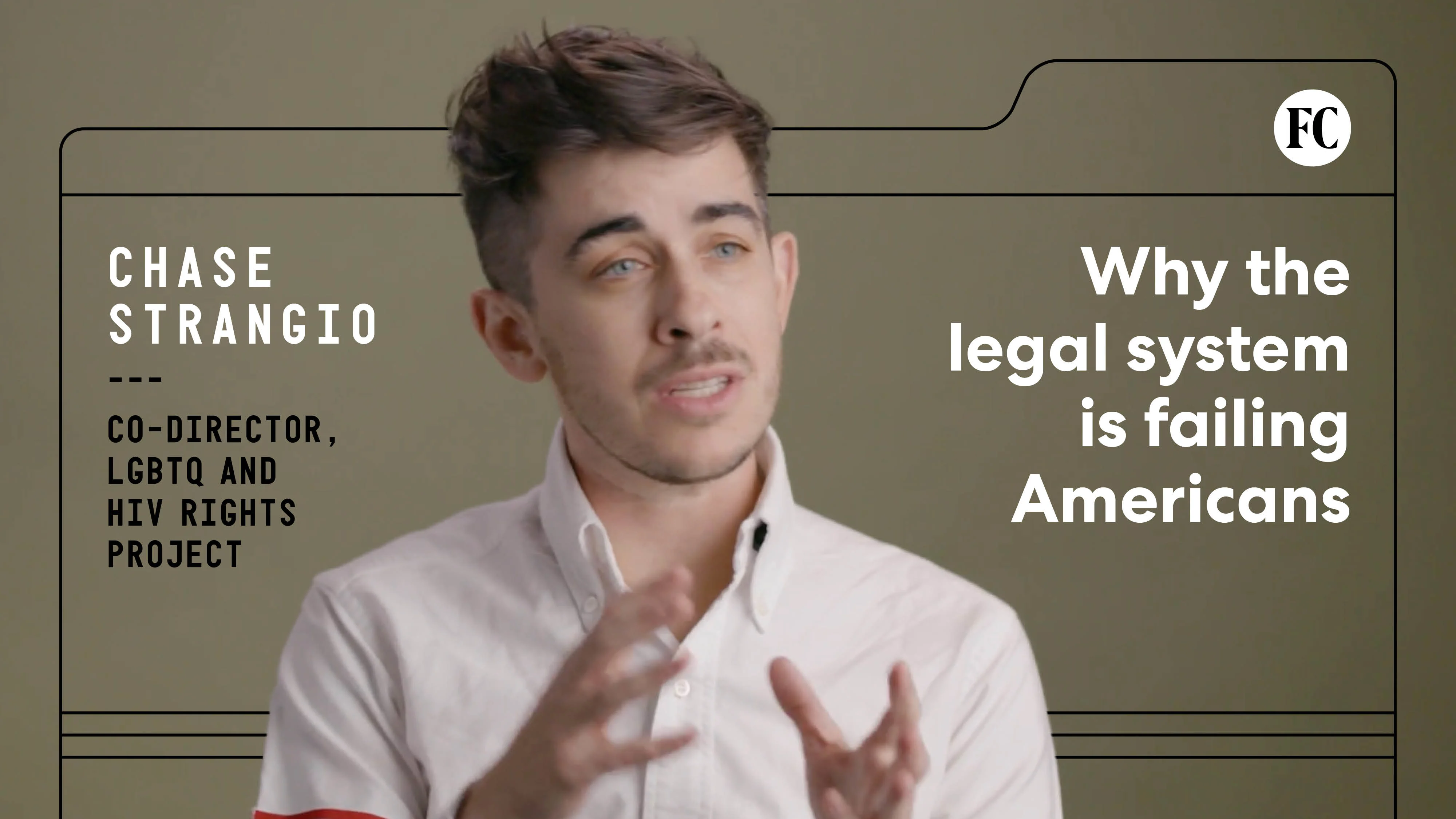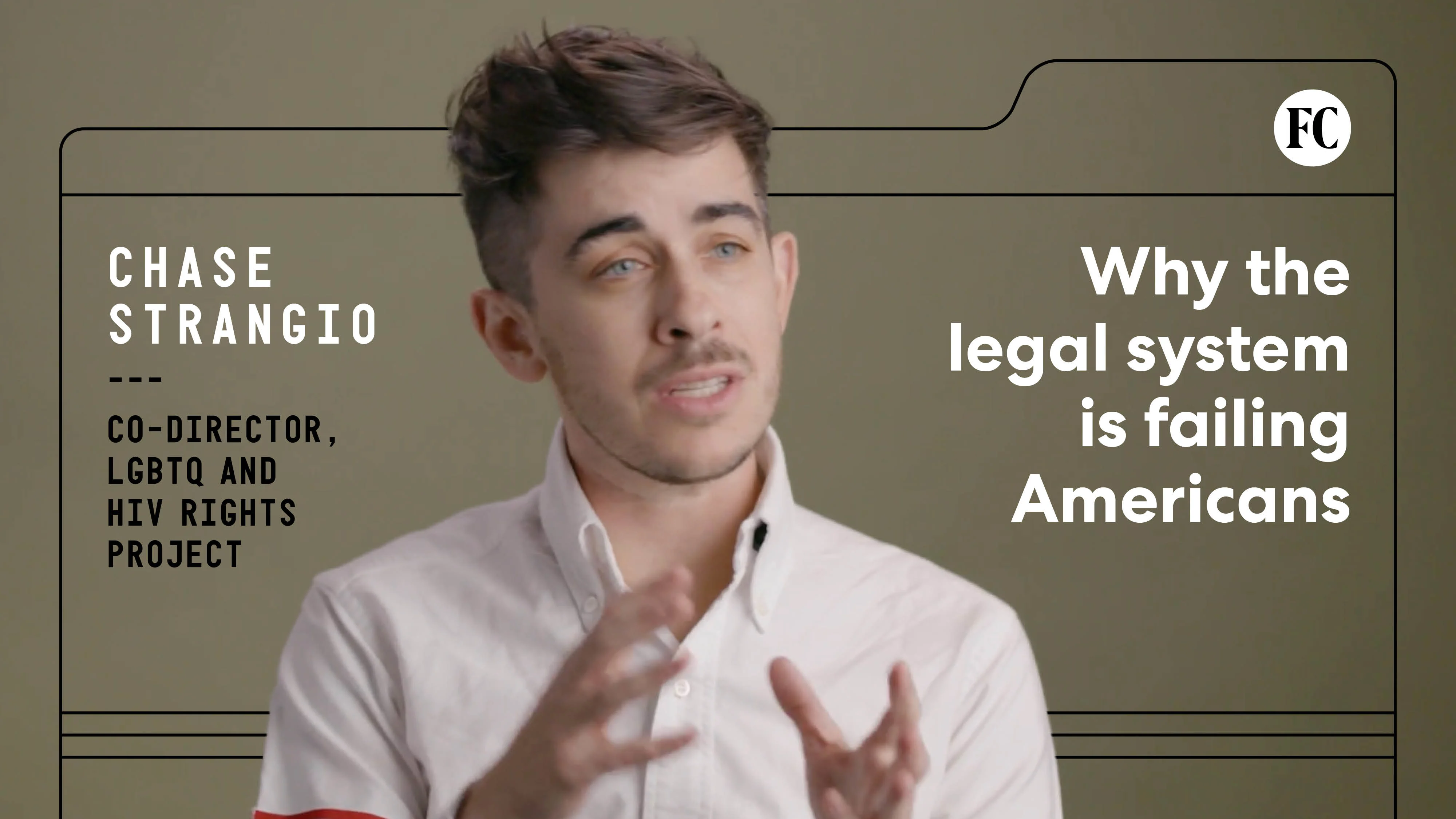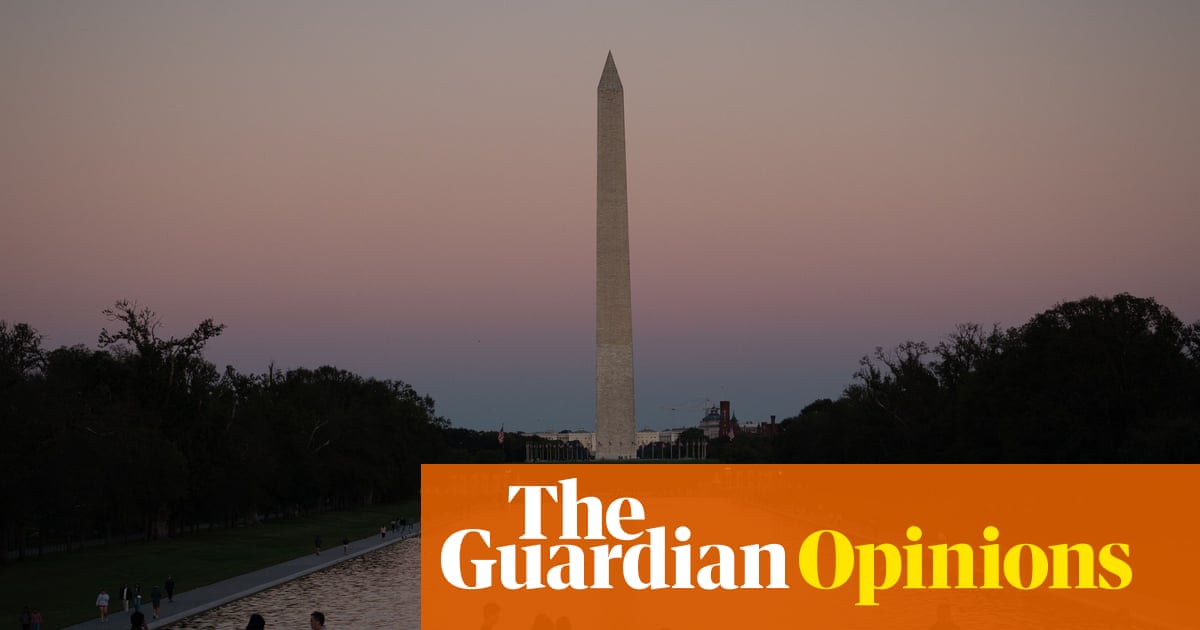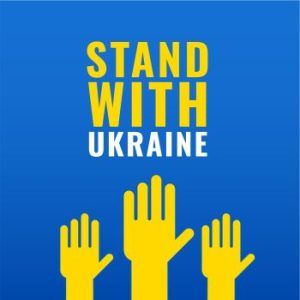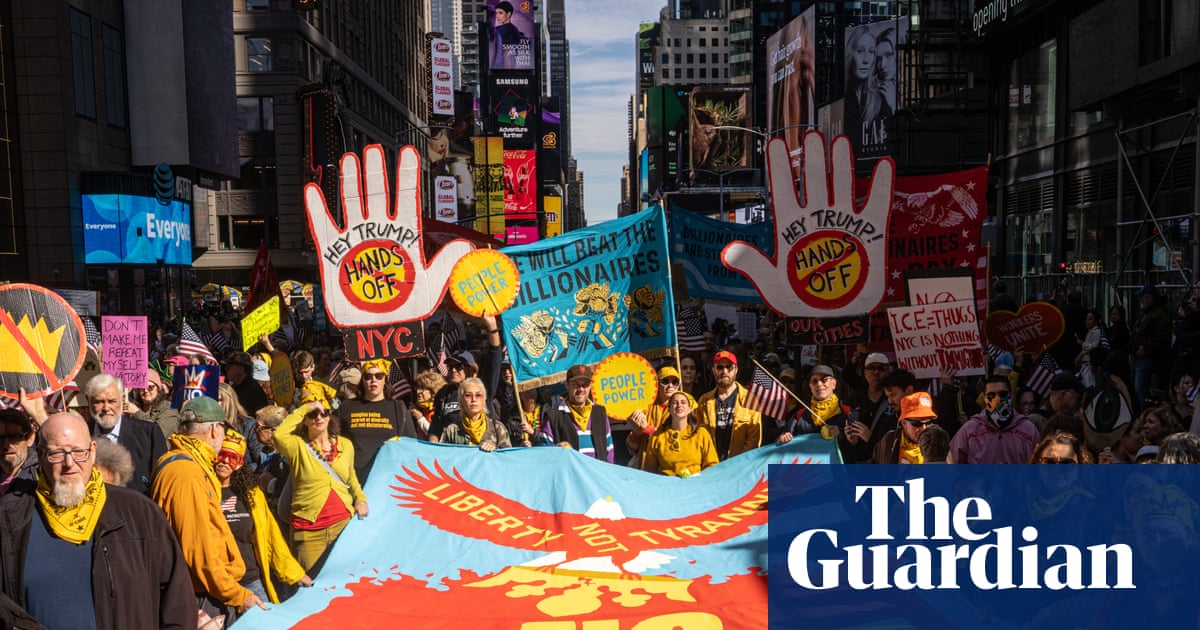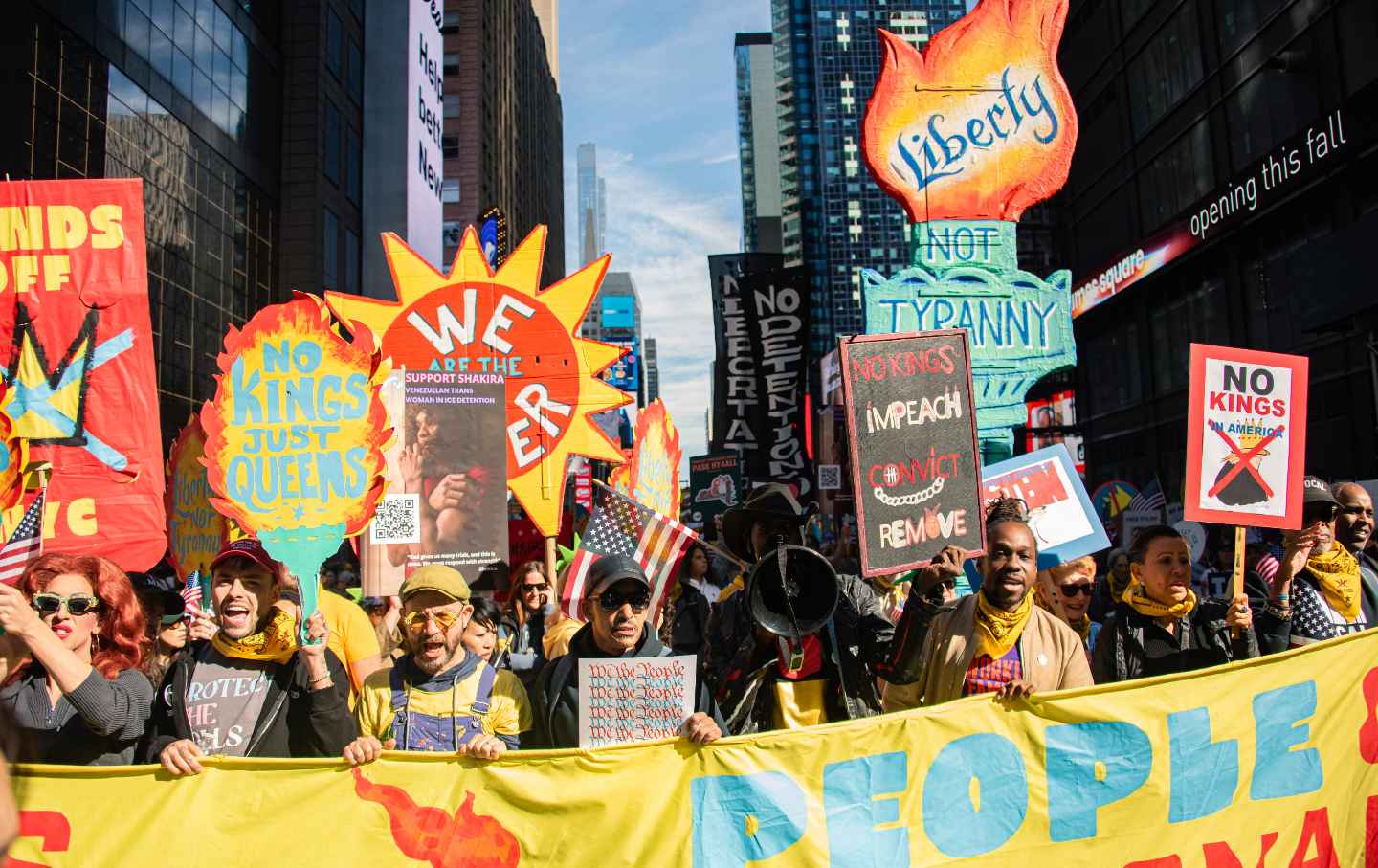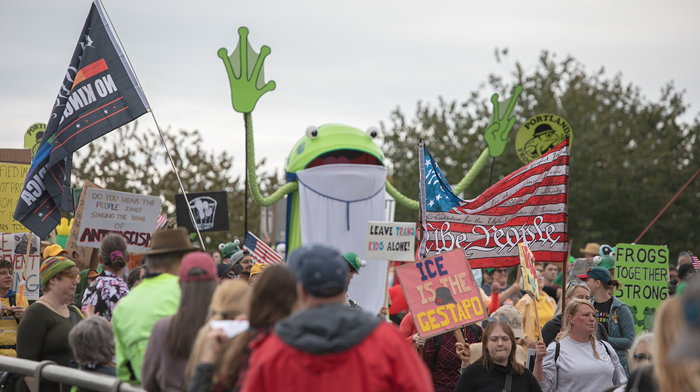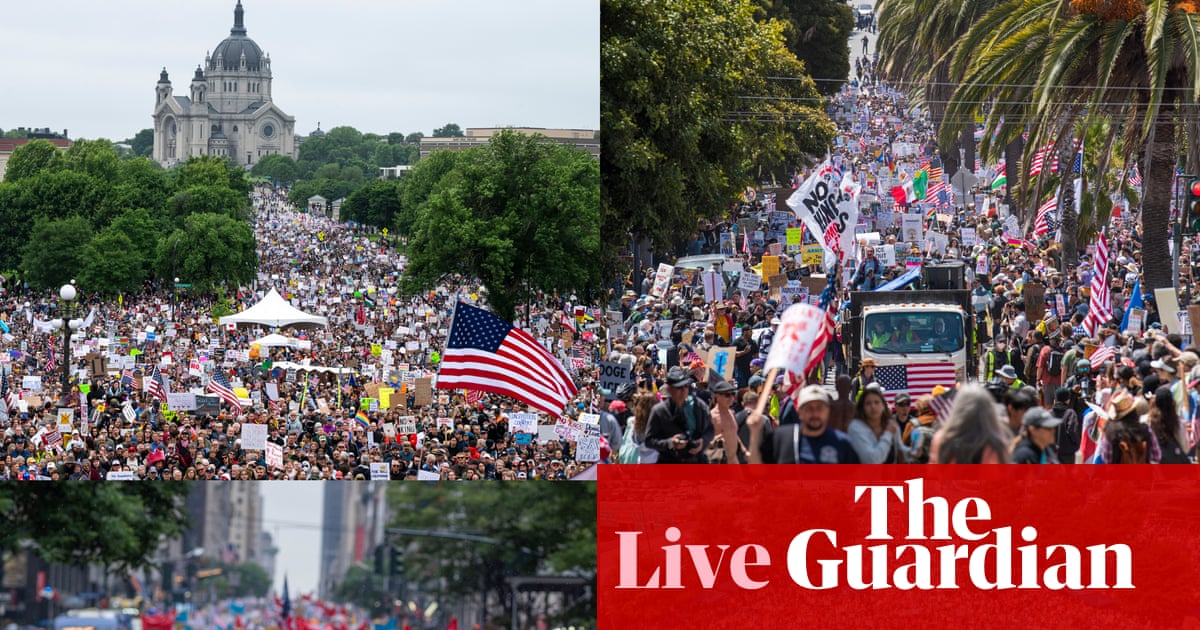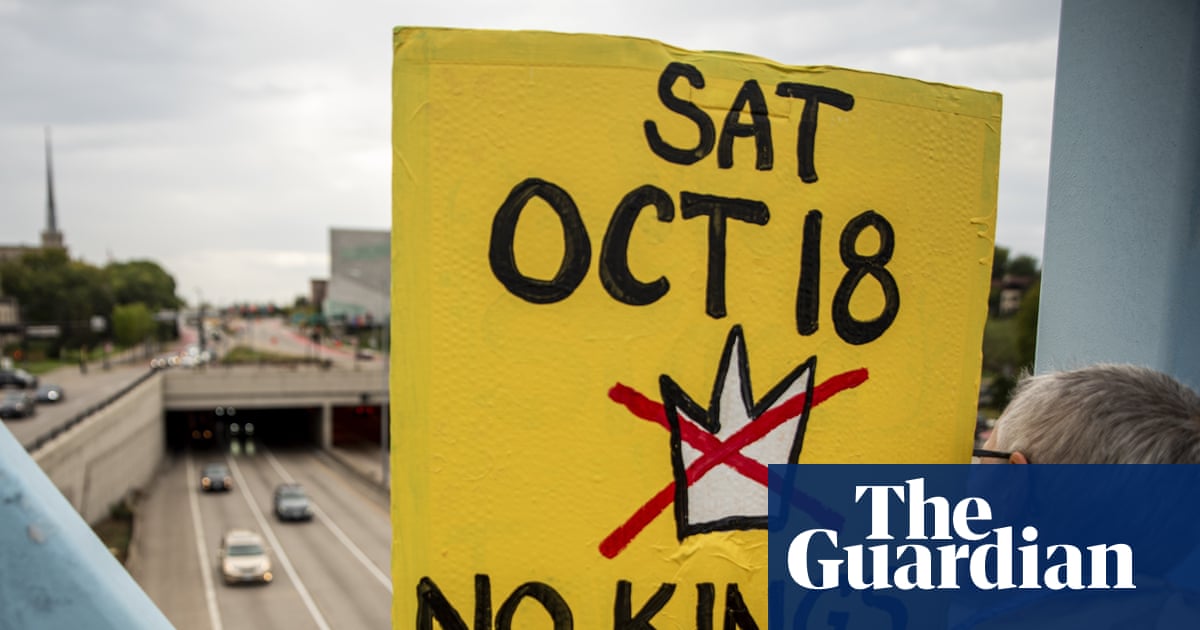#authoritarianism
#authoritarianism
[ follow ]
#donald-trump #trump #civil-liberties #no-kings-protests #protests #venezuela #no-kings #us-foreign-policy
Soccer (FIFA)
fromwww.theguardian.com
2 days agoWelcome to the 2026 World Cup shakedown! The price of a ticket: the integrity of the game | Marina Hyde
Fifa functions like an autocracy, prioritizing profit and authoritarian hosts over fans' rights, inflating ticket prices and enabling show trials and repression.
Women
fromwww.theguardian.com
5 days agoIn this age of authoritarians, online abuse of women is soaring and it's leading to real-world' violence | Julie Posetti
Networked misogyny, amplified by generative AI, escalates online violence against women in public life, causing offline harm and undermining gender equality and democratic participation.
US politics
fromThe Nation
1 week agoA New Roosevelt Institute Report Confronts the Roots of Our Media Crisis-and Calls for Breaking Up Corporate Media
Authoritarian tactics and concentrated commercial ownership converge to undermine press independence, enabling political coercion over journalism and threatening free media.
Books
fromLGBTQ Nation
1 week agoGregory Maguire says he never expected "Wicked" to reflect America's slide toward authoritarianism - LGBTQ Nation
Wicked reframes the Wizard as a charismatic authoritarian whose political themes resonate with contemporary politics while adaptations generated vast cultural and commercial impact.
Miscellaneous
fromwww.theguardian.com
1 week agoI thanked him for ending my acting career!' theatre directors on their debt to Tom Stoppard
Tom Stoppard supported and mentored Belarus Free Theatre, visiting Belarus, connecting with the underground resistance, and urging artistic excellence to confront authoritarianism.
World news
fromenglish.elpais.com
2 weeks agoGiuliano da Empoli: The key to Trump's success is moving fast and spectacularly, even when he contradicts himself'
Authoritarian national-populist leaders and major tech executives are colluding to control digital platforms and eliminate challenges to their power.
fromwww.aljazeera.com
2 weeks agoEgypt's all-important parliamentary elections aren't elections at all
The vote is carefully managed from start to finish so that only one outcome is possible: a longer lease on power for el-Sisi. It is difficult to overstate the importance of Egypt's ongoing House of Representatives elections. The voting results will not only decide the composition of the next parliament but will also determine whether, and for how long, the rule of President Abdel Fattah el-Sisi will be extended.
World politics
US politics
fromTruthout
3 weeks agoIn Courting Saudi Arabia, Trump Emulates Mohammed Bin Salman's Authoritarianism
State-sanctioned violence under Donald Trump normalizes cruelty, enabling extrajudicial killings, paramilitary-style enforcement by civil agencies, and racialized repression that erode legal protections.
fromThe Nation
3 weeks agoThe 1935 Novel That Predicted Trump's Second Term
Pop music may have been central to the New Left, but today's listeners are mostly reduced to hunting for Easter eggs, finding anti-Trump messaging in the likes of octogenarian Neil Young's tossed-off anthems. The eager critical embrace of Paul Thomas Anderson's One Battle After Another, based on a 1990 Thomas Pynchon novel steeped in the backwash of curdled 1970s left-wing militance, serves chiefly to underscore the film industry's studious disregard of the way America lives now.
US politics
fromVulture
3 weeks agoWicked: For Good Is Actually Better Than the First
Wicked: For Good is Ariana Grande's movie. And the film knows it, bending toward her every chance it gets. If the first Wicked centered Elphaba (Cynthia Erivo), the shy outcast whose discovery of her magical powers and the sinister machinery behind the land of Oz led to her being branded the Wicked Witch of the West, Wicked: For Good focuses intently on her opposite number and best friend, Glinda (Grande), now positioned by the powers that be as the good (but secretly powerless) witch who
Film
fromNonprofit Quarterly | Civic News. Empowering Nonprofits. Advancing Justice.
4 weeks agoMeeting "Flood the Zone" with "Rule-of-Law Shock and Awe" | Nonprofit Quarterly | Civic News. Empowering Nonprofits. Advancing Justice.
Perryman said the stakes go beyond courtroom victories. The real challenge is demonstrating that the public truly holds the power to counter and often stop the White House's seemingly unstoppable march toward authoritarian rule. "The real thing for us was, how are we going to show people that you actually still get to be in charge in your country-the people get to be in charge," Perryman told moderator and host of the podcast Pod Save America, Jon Favreau.
US politics
fromenglish.elpais.com
4 weeks agoSvetlana Alexievich: Homo Sovieticus hasn't died; he's in the Kremlin and fighting in Ukraine'
Svetlana Alexievich, the Belarusian author who writes in Russian and won the Nobel Prize in Literature in 2015, lives in the same Berlin apartment, with its high ceilings and spacious rooms, where EL PAIS visited her four years ago. The author of Voices from Chernobyl, Zinky Boys: Soviet Voices from the Afghanistan War, and Secondhand Time: The Last of the Soviets continues to write by hand.
Books
fromPsychology Today
1 month agoThe Downside of Silence
I first became interested in silence over 15 years ago when an overdose of New York City noise got me wondering if and how I could find refuge in its opposite, in absolute quiet-something that was not merely a reduction in or lack of noise, but a vibrant counterpoint to the sounds which we assume define and shape our lives.
Philosophy
fromThe Nation
1 month agoDC's Antifascist Hero-Sandwich Guy-Is Free
The online celebrity, legal woes, and final liberation of the irate, ICE-defying DC resident known throughout the world as Sandwich Guy seem tailor-made for late-night TV wisecracking. But given that we're presently slogging through the world's stupidest fascist timeline, the Sandwich Guy set piece can give us some surprisingly useful lessons in how to mount protests that can deflate the Mussolini-style self-regard of the MAGA power elite.
US politics
US politics
fromwww.theguardian.com
1 month agoA cultural revolution? Trump's America feels oddly familiar to those watching from China
Growing self-censorship and loyalty demands under Trump resemble Chinese-style political pressures, causing immigrants to fear speaking openly and prompting concerns about US democratic backsliding.
fromThe Atlantic
1 month agoVenezuela's Grim Prospect
For many Venezuelans, this is a disorienting moment. For a quarter century, our government has been using the threat of an American military attack to justify more and more authoritarian control over the country. Venezuelans got accustomed to dismissing it all as noise, just a pretext the dictatorship employed to stamp out civil rights. Suddenly, it's not just noise. President Donald Trump is very visibly preparing to do what Nicolás Maduro spent decades swearing the Americans would one day do:
World news
US politics
fromwww.mediaite.com
1 month agoTerry Moran Slams '60 Minutes' Treatment of 'Authoritarian' Trump: 'An Interview Without a Lot of Pushback'
60 Minutes failed to sufficiently challenge President Trump during his interview, allowing false claims to go unchallenged and empowering authoritarian tactics.
fromElectronic Frontier Foundation
1 month agoEFF Stands With Tunisian Media Collective Nawaat
It's a warning shot aimed at the very idea of independent civic life. The silencing of a revolutionary media outlet Instead, the Decree, once seen as a safeguard for civic freedom, is now being weaponized as a tool of control. Nawaat's team describes the action as part of a broader campaign of harassment: tax audits, financial investigations, and administrative interrogations that together amount to an attempt to "stifle all media resistance to the dictatorship."
World news
fromwww.theguardian.com
1 month agoDemocrats must not cave in to Trump | Bernie Sanders
We have a megalomaniacal president who, consumed by his quest for more and more power, is undermining our constitution and the rule of law. Further, we have an administration that is waging war against the working class of our country and our most vulnerable people. While Trump's billionaire buddies become much, much richer, he is prepared to throw 15 million Americans off the healthcare they have which could result in 50,000 unnecessary deaths each year.
US politics
Europe politics
fromwww.theguardian.com
1 month agoForget diplomatic niceties: it's beyond time Europe denounced Trump's trashing of democracy in the US | Paul Taylor
European leaders have appeased Trump's attacks on democratic institutions and should assert moral autonomy by openly opposing his authoritarian drift.
fromwww.mercurynews.com
1 month agoCrisp: How do you know when a nation becomes an autocracy?
In fact, since 1997 the Center for Systemic Peace has maintained a 21-point scale that takes into account various political variables elections, the role of the military, economic inequality, political violence and so on in order to describe where countries stand on the scale between democracy and autocracy. On the autocracy end, at -10, are the countries that you would expect: North Korea, Saudi Arabia, Bahrain, obvious autocracies all. At +10 are the apparent democracies: Switzerland, New Zealand, Canada and, until recently, the United States.
US politics
Women
fromenglish.elpais.com
1 month agoGlobal anti-feminist backlash gains ground after decades of equality gains
Women's rights have advanced unevenly and face regression worldwide; constitutional protections enshrining abortion can safeguard rights against rising authoritarian and nationalist threats.
fromThe New Yorker
1 month agoWill Paramount Cancel Jon Stewart?
That being said, I want to be clear. The victims of this Administration are not the comedians. We are a visible manifestation of certain things, but the victims are the victims-they're the people who are struggling to have any voice and are being forcibly removed from streets by hooded agents. Those are the victims of this Administration. I'm not sure Hitler cared about satirists, but I think this guy does. I don't think he likes being made fun of.
US politics
US politics
fromwww.theguardian.com
1 month agoNo Kings protesters on their hopes for resistance movement against Trump: If we lose momentum, we lose the fight'
Protesters warn that rising authoritarianism and possible martial law threaten democracy, citizenship rights, and everyday protections, demanding decisive political commitment and new rules.
fromwww.mediaite.com
1 month agoBlink Four Times': MSNBC's Jen Psaki Suggests Usha Vance Needs to Be Saved From Husband JD Vance in Shocking Comments
I think the little Manchurian candidate, JD Vance, wants to be president more than anything else, opined Psaki. I always wonder what's going on in the mind of his wife. Like, are you okay? Please blink four times, we'll-, come over here. We'll save you. I mean, he's scarier in certain ways, in some ways. And he's young, and ambitious, and agile in the sense that he is a chameleon who makes himself into whatever he thinks the audience wants to hear from him.
US politics
fromwww.mediaite.com
1 month agoJB Pritzker Compares Trump's ICE Raids to Nazi Germany: This Is How Authoritarian Regimes Do It'
This is how authoritarian regimes do it. They create these kind of fake ideas that there's an enemy out there and it could be sitting next to you at one of these tables. So just somebody sitting at your table that you don't like might be one of those enemies, Pritzker said. So let's round them up, let's make sure they are the subjects of the laws that we're passing, because we don't like who they are. That is what authoritarian regimes do.
US politics
US politics
fromAbove the Law
1 month agoNinth Circuit Confirms Trump Can Send SEAL Team 6 To Assassinate Dancing Inflatable Frogs - Above the Law
Ninth Circuit allowed National Guard deployment around Portland ICE despite state objections, signaling judicial support for expanded presidential authority and potential authoritarian precedent.
fromThe Atlantic
1 month agoIt's Not Enough to Read Orwell
George Orwell was dying when he wrote 1984 in the late 1940s on the desolate Isle of Jura in Scotland's Inner Hebrides. Tuberculosis ravaged his body, and typing thousands of words a day only weakened him further. His skin flaked off. Blisters burst across his throat. Feverish and emaciated, he endured painful procedures to support his failing lungs, but the treatments were too late. Eventually, in 1950, Orwell succumbed to the disease.
Film
fromThe Nation
1 month agoTrump Is Waging War On His Own Country
He told the hundreds of generals and admirals gathered to hear him that some of them would be called upon to take a primary role at a time when his administration has launched occupations of American cities, deployed tens of thousands of troops across the United States, created a framework for targeting domestic enemies, cast his political rivals as subhuman, and asserted his right to wage secret war and summarily execute those he deems terrorists.
US politics
Law
fromAbove the Law
1 month agoLegal Ethics Roundup: Legal Ethics On 60 Minutes, Fed Judges Warn Of Crisis, More AI Fines, DOJ Ethics Probes & More - Above the Law
Authoritarian tactics targeting lawyers, judges, and prosecutors are eroding legal advocacy, judicial independence, and the rule of law, threatening public interest lawyering.
fromAdvocate.com
1 month agoKarine Jean-Pierre explains why her new memoir, Independent, is a manifesto for a fractured democracy
In Independent, out Tuesday from Legacy Lit, the former White House press secretary offers a candid, unsparing view of what she calls a "five-alarm fire" threatening American democracy. Through a blend of memoir and political analysis, Jean-Pierre chronicles how she rose inside government, why she left the Democratic Party, and what she believes must change if the country is to survive the authoritarian turn ushered in by President Donald Trump's return to power.
US politics
East Bay (California)
fromThe Oaklandside
1 month agoThe East Bay 'resistance': A guide to local activism
Community organizers provide frameworks and trainings to prepare residents for resisting authoritarianism, drawing lessons from global movements and focusing on practical tactics and local coalition-building.
[ Load more ]
